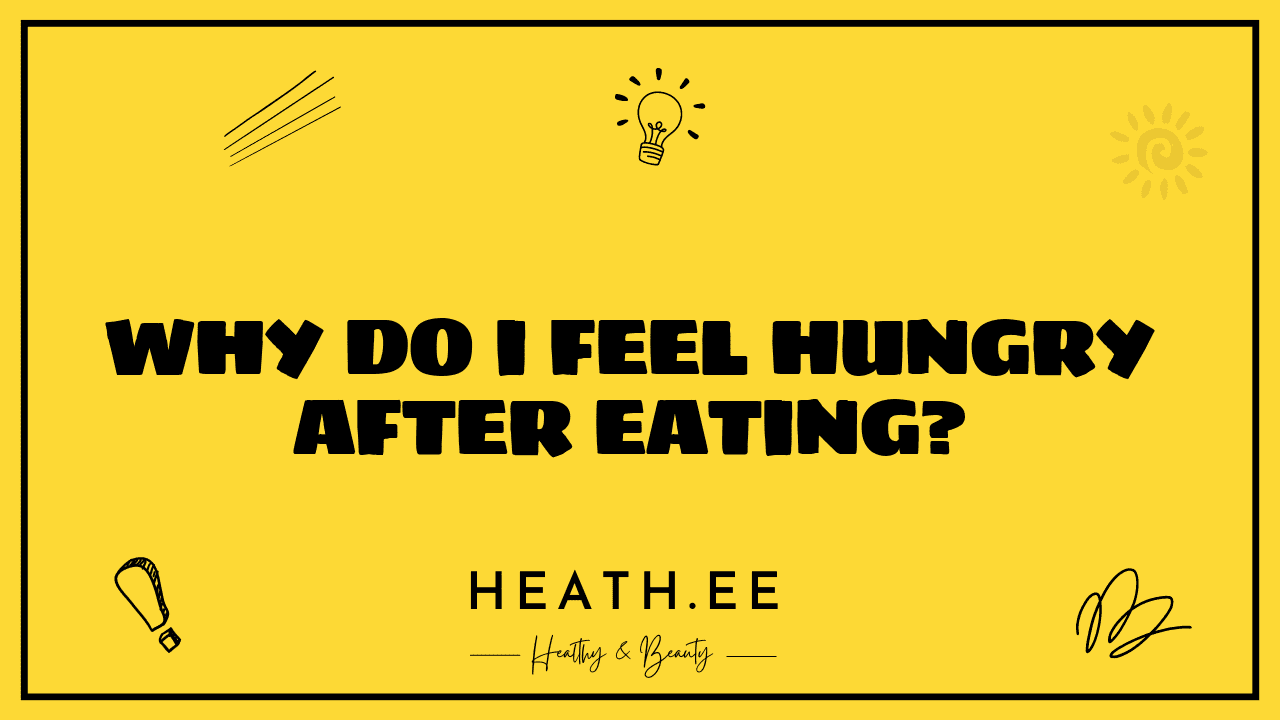We’ve all been there: you’ve just finished a meal and yet you still feel hungry. What gives? It’s a common experience, but why does it happen? In this blog post, we’ll explore the reasons why you may feel hungry after eating and how you can prevent it from happening.
Hunger vs. Fullness
Before we dive into why you may feel hungry after eating, it’s important to understand the difference between hunger and fullness. Hunger is the physical sensation of needing food, while fullness is the feeling of satisfaction after eating. The two sensations are regulated by hormones and the nervous system, and they can be affected by a variety of factors, including stress, hormones, and diet.

Eating Habits
Your eating habits may also play a role in why you feel hungry after eating. For example, if you eat too quickly or don’t chew your food properly, it can take longer for your body to recognize that you’re full. Additionally, if you tend to eat large portions or eat meals that are high in fat and sugar, your body may not be able to process the food as quickly, leading to feelings of hunger shortly after eating.
Stress and Emotional Eating
Stress and emotional eating can also lead to feelings of hunger after eating. Stress can cause your body to produce hormones that make you feel hungry, even if you’ve just eaten. Similarly, emotional eating can lead to overeating, which can cause you to feel hungry shortly after eating.

Hormonal Imbalances
Hormonal imbalances can also cause you to feel hungry after eating. For example, if you have low levels of leptin, the hormone that signals fullness, or high levels of ghrelin, the hormone that signals hunger, you may feel hungry even after eating a meal. Hormonal imbalances can be caused by a variety of factors, including stress, diet, and genetics.
Lack of Nutrients
If you’re not getting enough essential nutrients, such as protein, carbohydrates, and healthy fats, you may feel hungry after eating. Eating a balanced diet can help ensure that your body is getting the nutrients it needs to feel full and satisfied.
Sleep Deprivation
Sleep deprivation can also cause you to feel hungry after eating. Research has shown that lack of sleep can disrupt hormones that regulate hunger and fullness, leading to feelings of hunger even after eating a meal.
Dehydration
Dehydration can also cause you to feel hungry after eating. When you’re dehydrated, your body can mistake thirst for hunger, leading you to eat even when you’re not actually hungry. Staying hydrated can help prevent this from happening.
Medications
Certain medications, such as antidepressants, can also cause you to feel hungry after eating. If you’re taking a medication and find that you’re feeling hungry even after eating, talk to your doctor about changing your medication or adjusting your dosage.
Summary
Feeling hungry after eating is a common experience, but it can be prevented. Understanding the difference between hunger and fullness, eating habits, stress and emotional eating, hormonal imbalances, lack of nutrients, sleep deprivation, dehydration, and medications can all help you prevent feeling hungry after eating. Eating a balanced diet, staying hydrated, and getting enough sleep can help ensure that you’re getting the nutrients you need and that your body is functioning properly.



